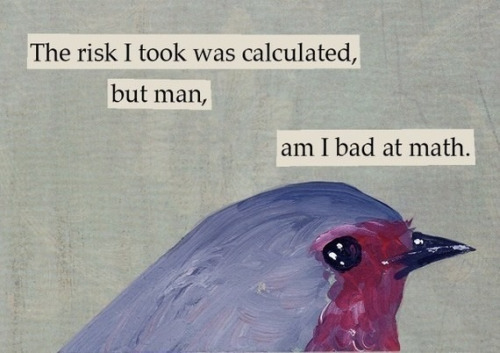I Read Bram Stoker's Dracula Right After Changing The Course Of My Studies. From A Fine University I

I read Bram Stoker's Dracula right after changing the course of my studies. From a fine university I went to another brilliant one. Everything around me seemed to take new shape and I had to learn new customs. In this phase, when my brain was forced to let fresh things pass, I found myself absorbed in this piece of literature, which I had been meaning to read for quite some time then. And so it was, I read it and found it interesting and original. On the contrary, I felt it wasn't a perfect match for me, since it was set in and meant to be understood in another era.
Time passed and I concealed my Dracula experience in the back of my head. This period, however, came to an end, when, yesterday night, I stumbled upon Francis Ford Coppola's Dracula (1992), and I couldn't resist, so I watched it.
The cast is near perfect, Keanu Reeves being probably the only odd one out, since he looked way too young and inexperienced to take on the role of Jonathan Harker. But all in all, Gary Oldman (Dracula), Winona Ryder (Mina Harker) and Anthony Hopkins (van Helsing), acted so stupendously, that left me breathless at certain points of the film. The directing was also terrific--of course, what else could we anticipate seeing Coppola's name on the credit roll.
Before saying anything I must remark, that I'm a huge supporter of book adaptations, so I had a very positive attitude towards the movie beforehand. At the very end of the film, it sadly turned into bitter disappointment. But remember, I write this, having established, that it was almost perfectly made.
Dracula's original story operates with stereotypical characters and countless elements brought in from superstition--not strictly, just in comparison with contemporary ways. The story has its twists and mysteries but those aren't as shocking and sudden as it would be expected from a current book. It begins with a solicitor, Harker's visit at castle Dracula and an encounter with the monster, Dracula. From here the count goes to London, seeking new lands to hunt humans. Harker's fiance, Mina is staying at her friend's place, at the same time. This friend, Lucy, has a habit of sleepwalking. When Dracula arrives to England, she, conveniently, happens to be the easiest target. The count feeds on her regularly, killing her little by little, until it gets too suspicious and Lucy's noble admirers, joined by professor Abraham van Helsing, unite to discover what torments the woman. They come to a right conclusion eventually but then it's too late and Lucy's transformed into a hellish creature, so they are forced to kill her, in order to grant her eternal rest and avoidance of godly condemnation. The fellowship decides to hunt the original vampire down and through Mina they get acquinted with Harker, who just returned, having scarcely survived his stay at the count's castle but is now resolute to bring down destruction upon the demonic creature. Dracula, moving on from Lucy, also turns Mina into a vampire, or comes really close to it, and then the men (and Mina) enter into a tight chase him and kill him.
In Stoker's novel, Dracula is a very instinct-driven killer. He only seeks base things and is not a bit a human. We don't get to see his backstory’s smaller details, only that he used to be an important and extraordinary man, then, at some point, he attended the Scholomance and has been like this ever since, only growing greater in his abilities. The only thing he engages in, apart from killing and turning people into vampires, is experimenting with ways to become more efficient at his other pursuit. Stoker wrote him as someone, who is led by evil and nothing else.
Dracula has one equal: van Helsing, who is almost identical to him, with the crucial difference of being motivated by good--by christian ideas in this story, mixed with superstition.
The movie tried to remain true to the source material in regards of the plot and interfered where intellectually a renovation seemed due. For example Coppola kept the means, by which the mourners of Lucy hunted the count but fundamentally changed the motives of Dracula. He tried to give sense to the character and so came up with the idea, that it would be of bigger service to the plot if the count was led by romantic feelings. It is supposed to give depth and seriousness to the drama. However, it works only if we fail to understand Stoker's original intents or if we are reluctant.
In the movie the count is fueled by grief and longing, after his dead wife, tragically killed hundreds of years ago. This event is where the movie’s Dracula experiences his extreme disappointment in the church and turns to other sources. The director takes it even further: Mina is somehow the reincarnation of Dracula's dead wife--this is very explicit, since she has actual memories from her past life. They both recognize each other and are gravitated to each other, even so, love each other honestly.
The movie has another important aspect: All of the good characters are humanized. The screenwriter threw away the naive figures and applied contemporary materialist tools to repaint them.
Coppola took the good characters and made them as bad as any other man and took the evil one and made him as good as any other. But what are the vampire hunters without a high ground? Dracula, in the other hand, has a morose reason behind all his evil-doings and is thus legitimized, made the victim of the story.
Stoker painted a picture, that was clearly white and black and then came Coppola, saying 'Hey dude, life's more complicated, than that'. Of course life is more complicated, than that but Stoker had an entirely different meaning. In his story: There is a transcendent world, there are transcendent values. In Coppola's vision, what we get is very grounded: we all are the same (not equal but identical!), regardless from the appearances, and the idea that everyone faces something after they're dead is as old as Stoker's vampire, and just as much an entertaining element of folklore but nothing more.
The movie denied the concept of good and bad. It rationalized that if we were Dracula, we'd probably end up doing things that could be deemed wrong, yet we would be as valiant as humans ever were. This is not necessarily killing or whatnot but we wouldn't be perfect if our lives weren't perfect. Dracula was demonic but with a certain justification. He had to be killed, of course, but it was tragic, in contrast with Stoker's ending of the story, where it was a relief.
Originally I liked Dracula's story because everything the characters did, even when they killed the abominations created by the count, or the count himself, served other purposes, than to increase the spectacle of the story. The hunters freed souls and granted them such things, that were impossible for the victims to attain on earth any more but existed nonetheless. Stoker believed in morals that aren't based solely on practicality but on a grand concept, that there exists the metaphysical and good above the world we know--that there exists God.
More Posts from Bernatk and Others
Listen without interrupting. ( PROVERBS 18 )
Speak without accusing. ( JAMES 1:19 )
Give without sparing. ( PROVERBS 21:26 )
Pray without ceasing. ( COLOSSIANS 1:9 )
Answer without arguing. ( PROVERBS 17:1 )
Share without pretending. ( EPHESIANS 4:15 )
Enjoy without complaint. ( PHILIPPIANS 2:14 )
Trust without wavering. ( CORINTHIANS 13:7 )
Forgive without punishing. ( COLOSSIANS 3:13 )
Promise without forgetting. ( PROVERBS 13:12 )
Ten Ways To Love
An Essay Against Calvinism
As a premise to this essay I want to note that I write all this as a Christian, I go to a Baptist church but I was also greatly informed by many of the Catholic Church’s teachings on numerous matters. In this context it is plain to see that I don’t intend to negate the validity of a Calvinist’s faith, however I truly believe that there are some completely mistaken ideas that are either introduced by Calvin himself or held sacred by contemporary Calvinist cells. Connecting to this last sentence I must add that many of my complaints and reflections come from contact with actual Calvinist theologians and from current -- sometimes underground -- publications by them.
First of all I want to present the claims and concepts of the Calvinists that I’m going to argue against. (#1)Out of many articles of teaching they are most boastful of the center of their theology, which they say is God and they contrast it with other denominations’ different focuses -- or at least as they perceive that this contrast can be legitimately made. At the core of their Scripture interpretation lie two crucial elements: (#2)the Predestination “fact” derived from Paul’s letter to the Romans; and (#3)a very broad incorporation of the Old Testament’s teachings. There’s also the doctrine of (#4)“Total Depravity”, which states that men can do only bad things -- meaning all men at all times do only bad things. And lastly there is (#5)a contradictory stance held by Calvinists on the principle of “Sola Scriptura”.
#1: As it will be explained in the point about Predestination, Calvinists support and try to resolve the internal conflict of their theology by referring to God’s infinite greatness, his infinite power, and the infinite influence of his rulings. They use these attributes of Him to get rid of all logical counterarguments because, quite undeniably, He’s above all human intellect, so we cannot take up a fight against Him in any way, not even dialectically. This comes together with -- again from another point -- the faith that God decides about everything constantly. Predestination to them means that God actively makes unbelieving souls believe, by His own selective choosing. This is always irresistibly happening, but in fact this is the case with all things in the world: God makes everything happen.
Without spoiling my second argument too much, this, in a nutshell, is why they think the focus of their theology is God -- they refer to Him about everything. This is usually put in contrast with how other denominations treat the questions of faith and Christian conduct: all other schools of Christian faith believe there is an active human component in these matters. For example: when somebody is converted to Christian faith a generic Christian will say “He found God”, whereas a Calvinist will make the same assessment through these words “God made him believe”; another illustration is that in generic terms someone would “sin”, in Calvinist terms someone would “not be forced to do good things by God”. I hope this clarifies it: Calvinists do not in fact put God more at the core of their focus than other denominations, they only erase other words from their dictionary*. This trickles down to their theology in a peculiar way, as they find it arrogant of other Christian theology’s to involve positive action and human initiative in their tenets because those are not autonomous, instead made directly by God. Why would anyone mention something else, or explain something through other means than God’s work, when that is all there is? goes their argumentation.
I find it to be a serious misunderstanding of the contrasted denominations to say about them that they don’t put God at the center of their theology in the same exact way as them. In fact they say the same things with regards to God: He is all-powerful, all-encompassing -- the real difference is what Calvinists think about human beings. In a way they don’t believe in humanity. Not in the way that they don’t praise humanity or believe in its power to save itself, rather they don’t believe in its existence. More on this denial later, back to the point. As I’ve said, these theologies follow the same pattern, all believe there’s no salvation through actions, only through Christ but Calvinists laugh at the idea, when other denominations teach the believers about everyday conduct or talk about the search for purity. And they can’t avoid but laugh, since for them it is futile speech, men can do nothing on their own. Men’s every minute is ruled by God, if they be pure, God made it, if they be bad, God didn’t make them be pure.
This is an important mistake because all of Jesus’ warnings against pride and evilness fade in the shimmering light of denying the need for any Christian to strive to follow the teachings of the Bible -- after all, he’ll follow if God rules it, and he necessarily won’t if God doesn’t, he has no internal agency to act or remain inactive. Probably another point will bring more light on this...
#2: In Romans 8:29-30 Paul talks about how God has known and decided about His own before time to become like His Son. I was paraphrasing because I tried to both encapsulate the part that Calvinists base their teachings on and remain true to the text, not to accidentally bend it toward anything I might unconsciously prefer to be there -- I even tried to utilize the original Greek’s meaning for the most attainable truthfulness. The other bedrock of the Predestinarian Calvinist faith is the first part of the ninth chapter of Paul’s letter to the Romans.
It is an extremely dubious thing what the Calvinists do: they pose an interpretation of these scriptures and claim it is explicitly the content. I say it’s dubious because somehow non-Calvinists didn’t take up this mental and it’s never really been the canon interpretation. So they rely on one very revered source of the past: Augustine. His turn from Manicheism gave the Christian tradition one of its greatest theologians and philosophers, yet he shouldn’t be named as the one Calvinists will rely on. Augustine first championed the existence of free will, then, arguing against other schools of thought, went on more and more to shrink away from it. In The City of God he introduced the concept of God’s election for His salvation. It was much more moderate than Calvin’s but about near the end of his life, Augustine got to a point, where he, in a way, denounced free will and got to the point Calvin did. The reason he’s not an ideal theologian predecessor is that he never rested at any one state of opinion on the matter of predestination but kept it changing from work to work. Its evident reason is that he was continually arguing against others and in this fashion of reactionism were his interpretations born. Today we’re not having a discussion with the Plageans, there’s no actuality of his works, they should be inspected with a much more contextual approach and more analytically, not accepted as, well, Scripture. I want to note that I don’t intend to discredit Augustine, as there’s absolutely no way for me to do that, as he’s clearly my intellectual superior and I’d be a predestined loser in a sparring match, still, it’s important to see that there’s something forced in the Calvinist approach to legitimize their claims of predestination.
The Calvinist concept of predestination is as follows: God, in his sovereignty, elects certain individuals for salvation. Others He elects not, as everybody is worthy of damnation, which even further glorifies His loving kindness and goodness, since He does elect some by His grace.
First of all it is crucial to remember that, despite what Calvinists claim, only the Calvinist interpretation of the texts from Romans is the above one. Other denominations and schools of faith never taught that this is the meaning of Paul’s words. Mind you, despite the claim that this is explicitly what he says. This statement of mine must be amended because the Calvinist interpretation isn’t completely dissimilar to others, traditionally Christians have believed that God works in people to help them to get to faith and on their own people wouldn’t be able to find salvation. Even so, this is what the work of the Holy Spirit in us is most often credited for: He helps us to break free from our flesh and eventual death, in order to be resurrected. This I do not argue against. Yet, it’s not identical to the Calvinist version.
The reason why predestination isn’t an interpretation that Christians traditionally believed is that salvation has been connected to Christ’s sacrificial death on the cross, His resurrection, and faith in it. Even though Paul doesn’t speak of any of these things in these verses. His mention of the Pharaoh, of the Jews and Gentiles, seem to show God’s workings on Earth. Especially so, since in these cases there was no Gospel, at the time of Moses the Jews didn’t have a concept of any afterlife or salvation, yet they were elected. If this election means election for salvation, then God’s saving works used to be happening completely without the sacrificial death of His Son, which I think is blasphemy. If we make the step as to say chronology is irrelevant from the point of view of God, there still seems to be a problem with Evangelization: if people were saved unknowingly, why does the Bible put an emphasis on the spreading of the Good News? Why does it matter? The question of afterlife for people before Christ’s time is quite mysterious for us but the Calvinist answer is outright contradictory, to say the least. It seems that Paul could possibly mean something other than God would choose on His own accord to save some and damn others, and like most Christians believe, there likely is a reality on the part of human initiative with regards to faith, even if not achieved completely alone.
Now there are Calvinist responses to these:
Predetermination is argued against because it seems illogical, whereas it seems so only because humans are much lesser beings and what constitutes logic**? Human constructions, whereas God’s great works far exceed those. He wills what He wills, that is His sovereignty and we are not to understand it but to abide by it and make ourselves subjects to it.
This is problematic only because predetermination seems to reflect solely the Calvinist vision, and I suspect they refer to God’s sovereignty only in order to prove themselves, as His rulings are indeed inarguable. Traditionally this isn’t the interpretation, logically it isn’t the interpretation, there is no reason to accept it, other than Calvin and Augustine said it and that falls into the category of tradition, which proves weaker than the entire Christian tradition; whereas if someone claims to have come to the same conclusion about predetermination, they used their logic, which is again overruled by sounder logic.
God is great, in fact He is the greatest in existence. It is arrogant to assume He needs our assent, that is, our initiative, our, so called, faith, in order to save us. If He wills to save someone, He cannot be stopped with any obstacle and if He wills not to save someone, those cannot somehow get into salvation.
My answer to this is that God’s irresistible greatness is made evident in His work of Salvation through Christ. That cannot be undone by anyone or anything, it is done forever. It is superfluous to go as far as to assume He must decide for us. This is, of course, assuming that it is possible for humans to autonomously believe. I will explain this later but it is a crucial question because Calvinism tends to express its stance not dissimilar to disbelief in human existence. So the problem with the Calvinist argument is that they believe non-Calvinists think God needs us to repent, on our own, is because He couldn’t otherwise save us and that makes Him look incapable of overcoming our will. And yes, evidently He can harden and soften people, but were it the case that people could decide to believe or disbelief, He could let them. God’s all-powerful work is that we can be saved and if we believe there’s no circumstance that can take us out of salvation -- simply, Calvinists reject the notion of free will.
#3: Now it is universally true that for sound doctrine it is necessary to incorporate the entirety of the Bible, that is, including both Testaments. Why Calvinists differ from other Christians in their doing so is that they look at it normatively (not differing from all schools of faith, as fundamentalist interpretations usually follow the same pattern). This is problematic because in the New Testament it becomes quite evident that Gentiles are not required to conform to old Hebrew rules and patterns and in the light of the Gospel the Old Testament’s essence seems to be revealed to be something completely beyond normative texts: it is a narrative gradually moving toward the final revelation, which is Christ as the Son of God and as the Savior. Paul also talks about the role of the Law in the Christian life, and in addition to this, many texts of the Old Testament, especially the ones concerning normative parts, philologically seem dubious, as in attributing rules and laws to Moses whereas they were created much later. This makes it questionable in the context of usefulness as normative texts and it seems just more likely that they are included in canon for other reasons, namely for context, or helping to create the image of Christ throughout the Old Testament. Now this is not as elaborate as the previous arguments but I hope I have at least made this argument at least an inspiration for understanding the underlying problem with this trait of the Calvinist faith.
#4: Calvin introduced the concept of Total Depravity in Institutes. It’s based on several verses from the Bible and he concludes that all men at all times are doing evil things and they cannot help but do that.
I will present three counterarguments to this, the first one I consider a weaker one, the second one I consider a more powerful one, and the third as an auxiliary one.
Firstly, through empirical inspection it is quite visible it’s untrue. Not only in the sense that not all people are doing the most vial crimes imaginable at all times but also seen in how sometimes people perform completely innocent acts. There’s familial love and care, which isn’t universal but at least general and usually observable. To this can come a counterargument of selfishness. People can perform seemingly innocent acts but be, in their spirits, totally depraved while doing so. Selfishness is widely accepted as a manifestation of sinful nature and when a mother takes care of her child, she wants gratification, she wants some subtle pleasure in return. This is understandable and eerily similar to Kant’s moral criteria of the categorical imperative. Still, many idealists, who aren’t Christians, show self-sacrifice for the sake of a good cause, without any hope or desire to be remembered or praised for their achievement. It is a rare, noble behavior, but nonetheless observable. Of course, what is empirical evidence, when a man can be deceived, or can misunderstand what’s before his eyes? This is why it’s a weak argument, when dealing with higher things than base natural science.
Secondly, Calvin seems utterly and irreverently selective with regards to his choosing of Bible verses. From the time of Noah, when everybody was evil, yet a man truly just before God existed, through the Psalms, which describe evil and good people, to Paul, who was quoting the Psalmist, everywhere in the Bible there is a dichotomy of Good and Evil persons. It’s very important when dealing with this matter. Even outside of the community of generally accepted believers there seems to be, at least portrayed, gracious characters in the Bible and contrary to a selection of decontextualized verses, the Bible never categorically claims that people would be inherently incapable of doing anything but evil. In fact, it would be futile to call anybody to do good or resist evil, were it impossible for them. While sinfulness in nature is apparent, its totality is Calvin’s invention. Other schools of faith teach the doctrine of deprivation in the way that all men are sinful and cannot achieve salvation, therefore are in need of God’s mercy, realized in Christ and His work of salvation.
The reason I find need for an auxiliary argument is that with total deprivation comes the incredible doctrine of human-denial. The ultimate response to any criticism about total deprivation is that men can do only wrong and God can make them do good, when He decides so. He does that for the sake of His own children’s benefit. This means that humans are bound to take the course of evil, unless by God they are bound to do good. The horror in it is that for anything to be alive it must have agency, it must be autonomous but if we are truly not doing things on our own accord, as we cannot possibly alter our will to decide between good or bad, we are not in fact real agents, we are not in fact alive (in terms of soul or spirit). Also, this claim is self contradictory, as if men were incapable of doing anything good, the evil they do would not be their own responsibility. For, are we responsible for things we don’t decide to do? Are we responsible for things we are forced to do? This can’t be a true state, as God is just and righteous, He isn’t condemning people if they are not responsible but they are. In Romans 9 we see a seemingly similar line of argument, only that applies to the election and that has already been discussed above.
#5: The principle of “Sola Scriptura” is that faith is based solely on the Scripture. Yet, this is, illustrated by my previous arguments, far from realized in the Calvinist system. They have their own inventions, their own interpretations and they cling to it and often choose to change the scripture to fit to their doctrines. There are visibly higher authorities than the Scripture among Calvinists and not only Jean Calvin himself -- but he certainly is --, but Councils and texts declaring doctrines. Of course, many denominations utilize extra-biblical sources to base their rituals and modes of teaching on, what separates the Calvinists is the hypocritical nature of it. While a church may have an influential tradition, it is possible to remain true to the Scripture, theologians only have to know which is which; in contrast with the Calvinist way, where tradition and authority is said to be the Scripture or its only right interpretation.
In conclusion to this essay I’d like to add a few notes. Most importantly the reason behind writing this is twofold: on the one side I find a few great errors in Calvinism, especially the kind I encounter through certain theologians and their influence, and I am worried it would spread (evidently more and more people are impressed by it); and on the other side I haven’t seen any denomination in my life be as actively critical and hostile toward other churches as the Calvinists, and it’s important to see that the ones who call the Catholics non-Christians and non-Calvinists as lessers, do in fact comprise the greatest sect in Christianity. These last few words might seem very harsh and I only half-mean them but in light of the above arguments I find myself strongly leaning away from them. Ultimately, I mean no harm, I intend not to hurt any Calvinist’s feelings, I’d be thrilled to continue it as a conversation on faith, and, most importantly, I don’t think Calvinists can’t be saved by God because of their mistakes.
Before commenting consider the following: this is not a scholarly work; I have written it truly as a Christian, don’t try to mix into this essay any other religion or atheism.
NOTES:
*In James there is a lot said about acts and while they’re still no way of salvation, he points out they are necessarily part of a living faith. It is for this reason that non-Calvinists typically mention good acts and even include it in their teachings, since, according to James, a good conduct is inevitably paired with faith. (I wonder if Calvinists are ever puzzled by James’ words.)
**Logic is often associated with humans, as inherently flawed, just like them, whereas in reality logic is the formalization of the paths to right conclusions. In this way it’s easy to see logic can’t be blamed, as it, by nature, cannot err. Where there’s failure in the conclusions, there’s a lack of sound logic. It’s a little bit beside the point, that’s why it’s a note, nevertheless, I thought it important to remind us all that logic is never the culprit, it’s not human-like in any way, it is a precise way of formulation, much like language is a way of expression, yet we -- while language is often unable to fully express something -- don’t make it the Big Bad and reason of false ideas.
***”schools of faith” is a phrase here, referring exclusively to Christian theological teachings and nothing of other religions, nor pseudo-Christian ones
One day Joseph, a Masai warrior, who was walking along one of these hot, dirty African roads, met someone who shared the gospel of Jesus Christ with him, and then and there, he accepted Jesus as Lord and Savior. The power of the spirit began transforming his life, and he was filled with such excitement and joy that the first thing he wanted to do was return to his own village and there share the good news to the members of his own local tribe. Joseph began going from door to door telling everyone he met about the cross, suffering, and the salvation that it offered, expecting to see their faces light up the way his had. And to his amazement, the villagers not only didn’t care, they became violent. The men of the village seized him, held him to the ground while the women beat him with strands of barbed wire. He was dragged from the village and left to die alone in the bush. Joseph somehow managed to crawl to a water hole and there, after days of passing in and out of consciousness, found the strength to get up. He wondered about the hostile reception that he had received from people he had known all his life. He decided he must have said something wrong or left something out from the story of Jesus. After rehearsing the message that he gave at first, he decided to go back and share this message again. Joseph limped into the circle of huts and began to proclaim Jesus. “He died for you so that you might find forgiveness and come to know the living God,” he pleaded. Again he was grabbed by the men of the village and held while the women beat him, reopening wounds that had just begun to heal. Once more, they dragged him unconscious from the village and left him to die. To have survived the first beating was truly remarkable. To live through the second was a miracle. Again, days later, Joseph awoke in the wilderness, bruised, scarred, determined to go back. He returned to the small village, and this time, they attacked him before he had a chance to open his mouth. As they flogged him for the third and possibly the last time, he again spoke to them of Jesus Christ, the Lord. Before he passed out, the last thing he saw was the women who were beating him began to weep. This time, he awoke in his own bed. The ones who had so severely beaten him were now trying to save his life and nurse him back to health. And the entire village came to Christ.
How Our Suffering Glorifies the Greatness of the Grace of God by John Piper (via worshipgifs)
Frankenstein? You Certainly Have No Idea
A while ago I wrote a similar post about Bram Stoker’s Dracula, where I explored how we’ve gradually departed from the original concept and eventually turned the whole story inside out--the way it’s usually believed to be today.
Horror and genre fiction in general are looked upon as solely entertaining literature. It is best represented by enormous fandoms around horror stories that are really the shallow water of the stream of art--yes, I’m referring to Stephen King.
Although is it not supposed to be more? Shouldn’t horror really be more than a good fright? Obviously I ventured out to write this post because I strongly believe horror can have more profound dimensions and it should. Actually, my opinion is mainly informed by Stoker’s Dracula and Shelley’s Frankenstein (and a good portion is a result of reading Poe extensively in my teen years, as it shows in the post later).
Let me begin by explaining a bit about contemporary horror’s genesis. As a branch of literature it has very little to do with books, it is only an indirect continuation to the tradition. Today’s horror comes from a set of movies, some of which were book adaptations or remotely inspired by them. Actually one name is a recurrent theme here: Bela Lugosi, a.k.a. the king of horror--much more so than anyone would have thought. His version of Dracula has proven more enduring than the written one, so the underlying themes of Stoker’s novel, which even concerned the metaphysical at times, are lost, quite tragically. Also, the popular image of Frankenstein’s monster comes from the 1939 Rowland V. Lee movie Son of Frankenstein. The shape of the creature, its mindlessness, the castle, the assistant--every bit people associate with Frankenstein is a direct result of the movie, hardly any of which actually features in the novel.
A written genre originating from a visual one is encased in the limitations of both--what could not be visually understood won’t appear, and the same applies to the written part. It is an almost unimaginable thing but originally these horror stories barely ever showed the horror. “Why, we have that today,” the ignorant reader might say but the horror of old times was not filled with the today commonplace suspense and disgust elements.
In this post I focus on the method of Shelley in Frankenstein: Her approach was what we would today call the purist. Her novel embodies horror--the dictionary’s definition of it actually. She only ever tells as much about the monster that it exists, reluctantly adding that it’s too hideous to behold and once dropping that its hand resembles that of a mummy. The main instrument of this story is a very long line of deaths but only in the purist spirit, as well.
A prolonged prologue commences with establishing the members of an extended family. They are talented, intelligent, wealthy, charitable people, who are just the dream of the era. After individually stating about every relation how enviable and admirable they are, the monster is briefly introduced. No lightning is involved here, only the statement that Victor Frankenstein, the visionary, somehow figures out how to bestow life upon things and then, once the monster is created, he instantly regrets it and falls into a state of mental breakdown over the realization of how unhallowed his work is. The monster then lives alone for a while, gradually comprehends that he is frightening to humans and feels that he is forced into a perpetual state of solitude, which he loathes more than anything--so much so that he will burn down the entire world if necessary to get himself a companion. And that’s about it. The monster asks Frankenstein to create him a mate but as he refuses he decides to avenge him as the creator of his desperation through killing everyone he holds dear. Enter the death of all characters...
The horror is how Frankenstein watches everyone he loves being killed at the unstoppable hands of his own creation. His guilt and reflections at it are horror. He is horrified. Horrified. He--along with the invested reader--is not exactly startled, nor disgusted, but profoundly horrified.
But there’s more to this story than just being the original horror. I explored that dimension only because of the framework of today’s horrible, genre-redefining novels.
As contemporary horror tries to grasp what visually equates horror, all content is lost. Shelley operates with what Poe designated as the horror-writer’s most powerful instrument: “The death of a beautiful woman, is unquestionably the most poetical topic in the world.” In human relations the most extreme loss is that of one’s child but the loss of someone one loves tenderly comes in as a spectacular second, with a much more elevated pathos.
The reason this is preferred by Poe and a myriad of authors is that a parent-descendant relationship is a natural one, where choice has roughly no role, whereas in a romantic relationship, while having a powerful natural component, active choice is central. This is why a parent losing a child usually goes with the line: “A parent should not live to see their child die,” when a lover’s loss comes with: “They were taken from me.” So, while the first kind of death evokes the more profound pain, the second one is the more aesthetic. It is a better case of antagonism: what one actively binds themselves to, pledges to unite their identity to, is actively deprived from them by a second actor, thus their willing choice for whom they would value most highly in life is irrevocably undone.
The peak is then the death of a beautiful woman but it can only be a real peak if the beauty of that woman is fully realized.
An interesting juxtaposition can be made here between the book’s model and the contemporary one. The book emphasizes multiple faculties, such as intelligence, a charitable nature, intuition and nobility of character, whereas today’s model is derived from the passions of the flesh. Contemporary theories favor a simplifying approach, which marks the core of all traits the sexual of a person. However, Frankenstein is a great example of how it used to be a valid action to discrete the sexual, the intellectual and the emotional. Today it would be called repression of the true motives (the sexual), since all the faculties associated with beauty are just expressions of the deeper, truer core of identity. Feminists of the past would have pointed out that the death of the beautiful woman symbolizes Shelley’s vision of the intelligent, competent woman’s fate, as she is determined to die, even by the principles of literature (or Poe). Today’s most progressive feminists, though, would confine this story to the literal body of women, however, not only a story but women, and all people, are much larger than bodies.
But Frankenstein is not the perfect novel. Whereas it succeeds at many things and has its outstanding merits, it does fail at anticipating what the reader can guess, as Frankenstein misinterprets a supposedly enigmatic line and prepares for his own death, when his soon-to-be wife is threatened. Sadly the target is so obvious that it’s impossible to believe what the protagonist believes to come next but, as I have stated before, this is a completely marginal element of the story and perhaps even Shelley didn’t want to make it a really elaborate twist...
All in all Frankenstein is the beacon of the lost genre of horror. But beside its literary quality it might also be a reminder to the readers that there used to be a way of thinking that thought it possible to abstract from the material.
How to get lost... in life
Though I'm relatively young, I've begun to feel, that I've missed or failed chances, which cannot be recovered. I've been inadequately attempting to perfect and sell my book, to be discovered as a genius at basically any field. I've been chasing my impossible and utterly ridiculous dreams. In my pursue of a great life, I've lost sight of what originally motivated me. And I haven't only failed at completing certain goals, I've given in to family expectations, "sane" voices from all around me and to my unadmitted fear of living. There's a part of me, which, along with many of my past chances, cannot be recovered. Well not by me at least... The current state of my life is not even remotely related to my former anticipation. I used to believe, that amazing turns in life are ahead. And yes, I'm still young... But I've just wasted so much: time, resources, connections and most of all spirit.
What do I do now? I still haven't lost hope and in all probability I never will. Still, I don't have the slightest idea of how to act. The ground beneath my feet has shrinked to absolute nil. I can see clearly, how my further actions and plans can never lead to fruition. However, as I've said, I'm bound to hope, I still believe, that life can take an unexpected and rather fortunate turn and this endlessly rushing train will take me to a destination, that overtakes all that my limited mind can dream of now.
I have faith, that my fate is not in my hands. It would be inexpressably tormenting to have no hope for anything beyond my own power. I am grateful that I can dwell in the house of God forever.
I feel that it's like in some books, where the characters have little to no word in shaping their destinies. Well of course, I firmly believe, that my actions and thoughts matter enermously, more than I realise but, in this short post, my only concern was resolving my present predicament.
-
 bernatk reblogged this · 11 years ago
bernatk reblogged this · 11 years ago
I mostly write. Read at your leisure but remember that my posts are usually produced half-asleep and if you confront me for anything that came from me I will be surprisingly fierce and unforeseeably collected. Although I hope we will agree and you will have a good time.
213 posts




















